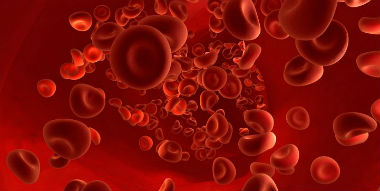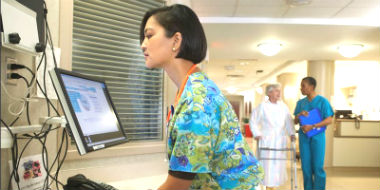Watson Health
Putting Watson to the Test for Cancer Care
December 9, 2016 | Written by: Andrew Norden, MD
Categorized: Watson Health
Share this post:
As a practicing neuro-oncologist, I believe in a collaborative approach to cancer care – involving the patient, their family, caregivers and a variety of clinical specialists. The cancer journey is challenging in so many ways that “going it alone” just isn’t an option if your goal is the best possible outcome. And today, with the explosion of data in oncology, technology plays a critical, growing role in supporting every member of the cancer care team.
I believe technology systems that can process massive volumes of disparate information and provide evidence-based insights that support challenging medical decisions will become vital to the future of our medical practice. And I came to Watson Health this year because I want to be a part of that future. Watson is the first and most promising AI platform to take on the challenges of the healthcare industry, and the inroads it’s making in cancer are without equal.
What started as a sophisticated – but nascent – question and answer system that could win Jeopardy! has quickly become a valuable resource for cancer docs like me. Trained at Memorial Sloan-Kettering Cancer Center, Watson for Oncology is now being used at more than 30 hospitals and health systems around the globe. And the results are compelling.
Over the past 3 months, I have had the opportunity to work closely with colleagues at Manipal Hospitals as they put Watson to the test, comparing the evidence-based recommendations of Watson for Oncology to that of Manipal’s tumor board – the team of 12-15 cancer specialists who review the most complex cancer cases each week. In a double-blinded study, the doctors at Manipal found Watson was concordant with the tumor board recommendations in 90 percent of cases. The study will be presented today at the San Antonio Breast Cancer Symposium.
Manipal initially conducted a retrospective analysis in which Watson analyzed cases from 2 years ago. Watson was 73 percent concordant with the recommendations the tumor board had made at the initial time of treatment. When the tumor board re-reviewed those cases based on current science, concordance rose to 90 percent. In essence, this shows that Watson has stayed up-to-speed with the science as it has evolved.
In certain cases such as metastatic breast cancer, the concordance rate was lower – 45 percent. These numbers indicate that in more complex cases, there are many more considerations, which create a heavier “cognitive load” on the clinician and more room for divergence in recommendations. Watson wasn’t wrong. Rather in these cases, Watson often uncovered well-reasoned, evidence-based recommendations – which had been overridden by the care team based on the unique, individual circumstances of the patient.
You see, in cancer care, the most effective treatment possible is not necessarily always the right treatment for the patient. As one example, I saw a patient recently who told me she wanted the best treatment regimen possible that would not cause her hair to fall out or make her nauseous. Her daughter’s wedding was the following month, and for her, nothing was more important than being able to enjoy the celebration.
This is why a collaborative care team is so important. It takes a village of clinicians, caregivers and, yes, technology, to determine the best, most effective treatment that is right for the patient based on his or her unique needs and wishes.
Manipal Hospitals adopted Watson for Oncology as a tool to support oncologists in making high-quality, evidence-based decisions for their patients. This study is helping reinforce the value of Watson to support clinical practice.
One thing is beyond debate: Watson is a complement to an oncologist, not a replacement. At Watson Health, we truly believe medical decisions will always be made with the expertise and empathy of physicians, caregivers and patients. But Watson can be a trusted, qualified resource for the collaborative care team.
I went into oncology to help people cope with and fight the symptoms and fears that cancer unleashes. And that’s exactly what I continue to do working with Watson.

MD, MPH, MBA, Deputy Chief Health Officer, IBM Watson Health
Alleviating the Burden of Diabetes with AI
How many decisions do you make per day? From the minute you wake up in the morning until you fall asleep that same evening, you likely have to make endless choices: the route you drive to avoid traffic, what you should order for lunch, when to run errands, what type of exercise you want to […]
Watson Health: Setting the Record Straight
We at IBM have a lot to be proud of, including our pioneering work with Watson Health. Unfortunately, some media reports, including an August 11th story published by The Wall Street Journal, distort and ignore facts when suggesting IBM has not made “enough” progress on bringing the benefits of AI to healthcare. I feel it […]
Addressing Barriers in Health Equity in Cancer with Technology
Like many doctors, I became a physician to care for those who needed it most. That motivation is central to my whole career. It’s why I worked in community health centers for underserved communities in Baltimore and Washington, DC, and pushed initiatives to eliminate health disparities when I worked at the National Institutes of Health. […]





























